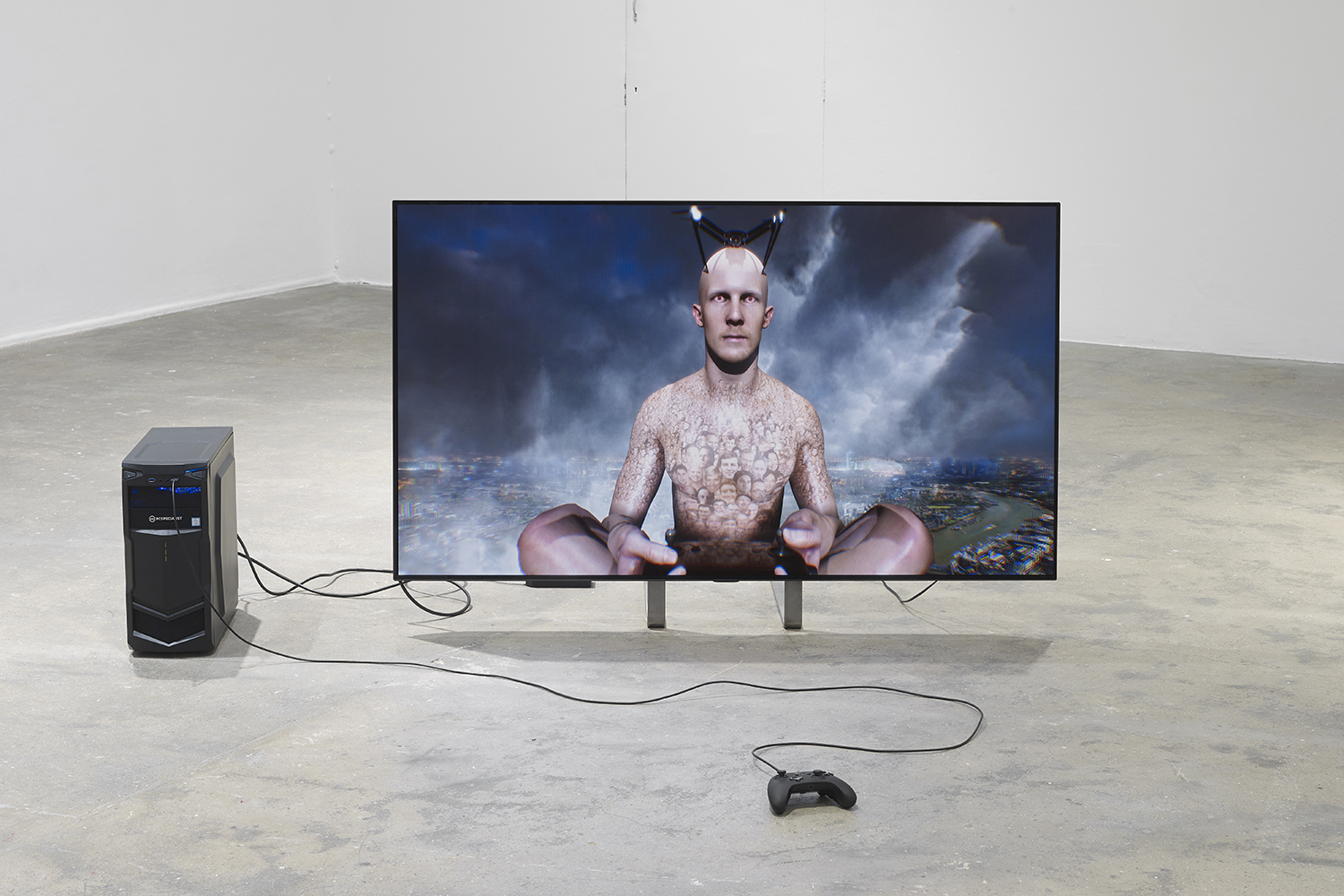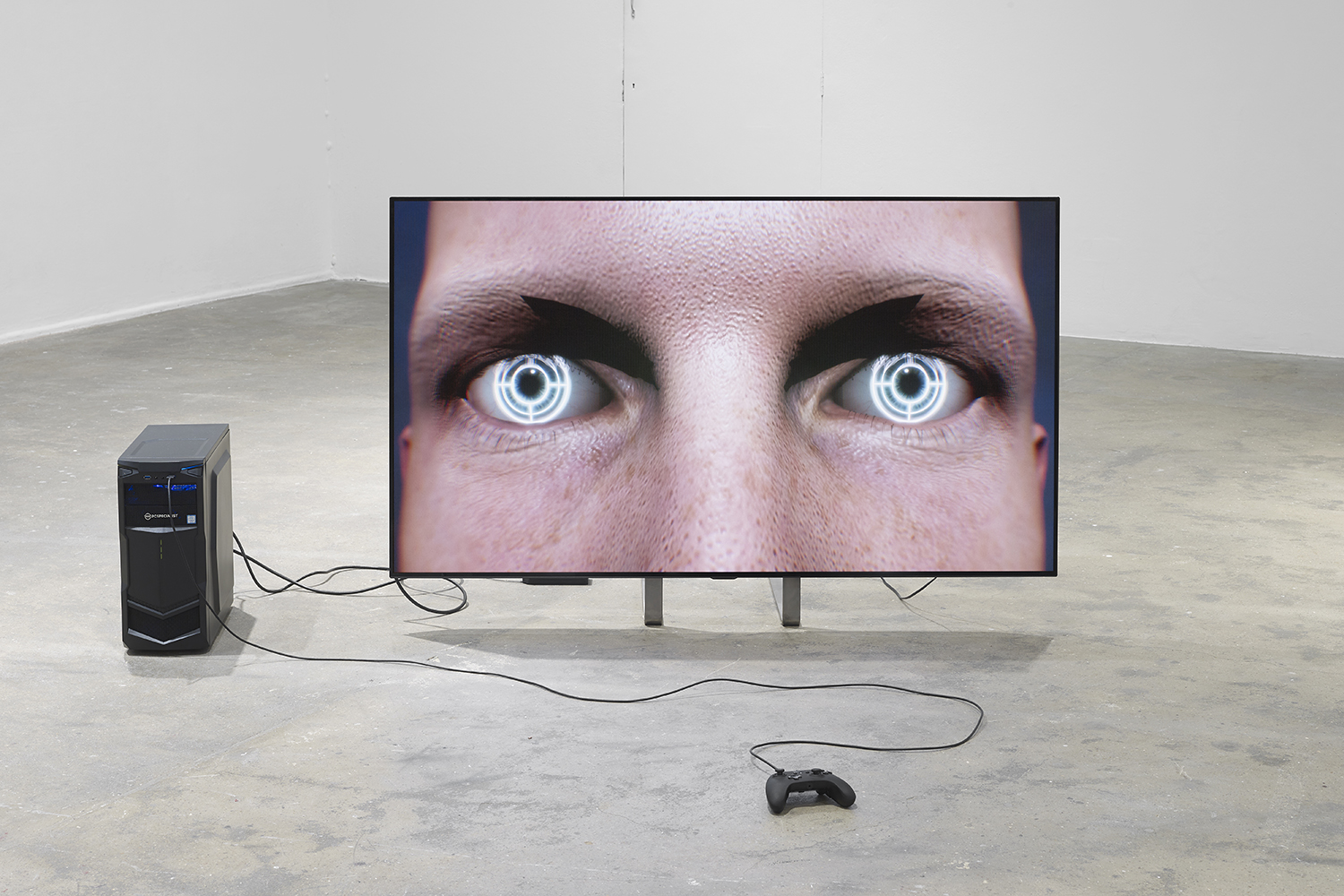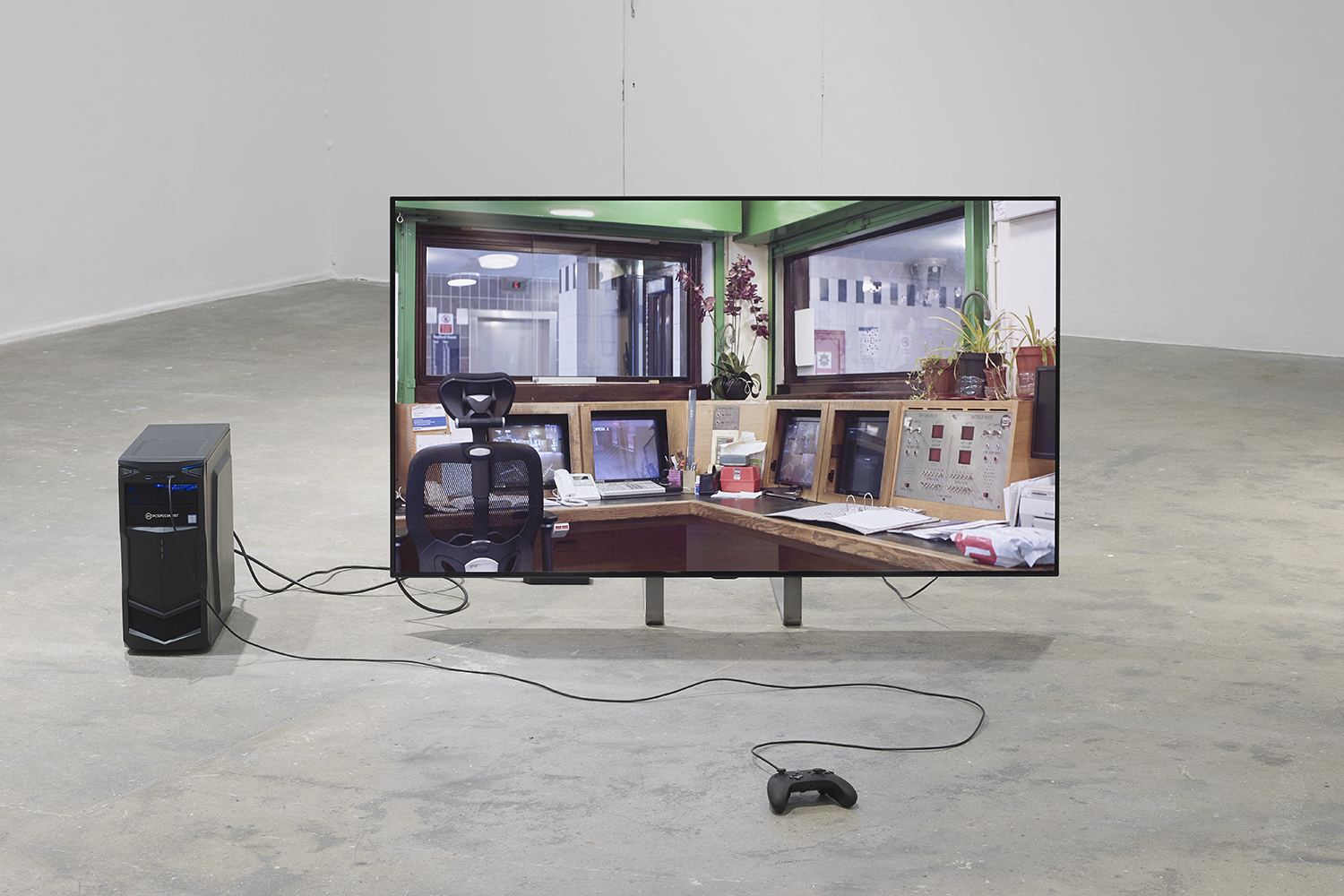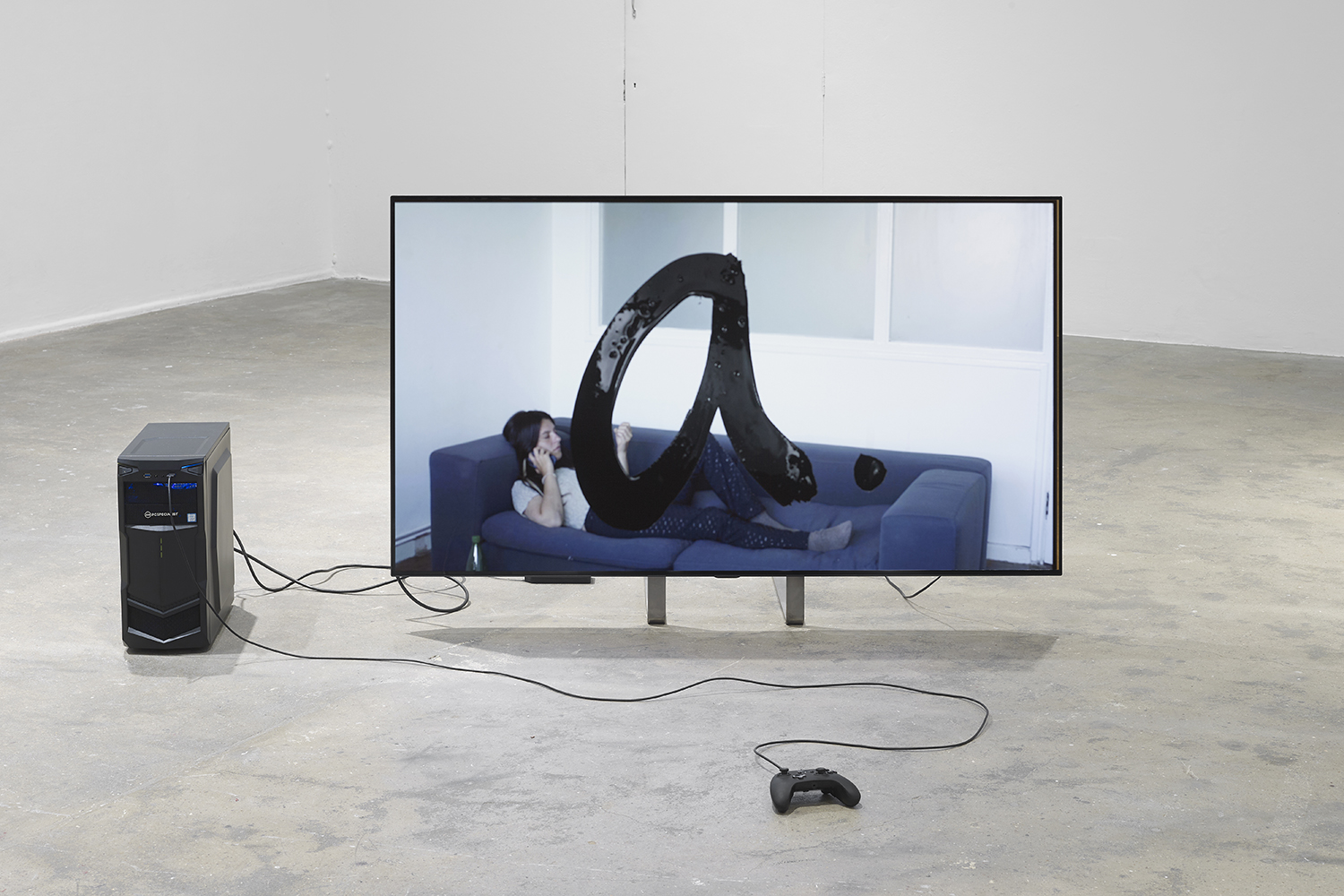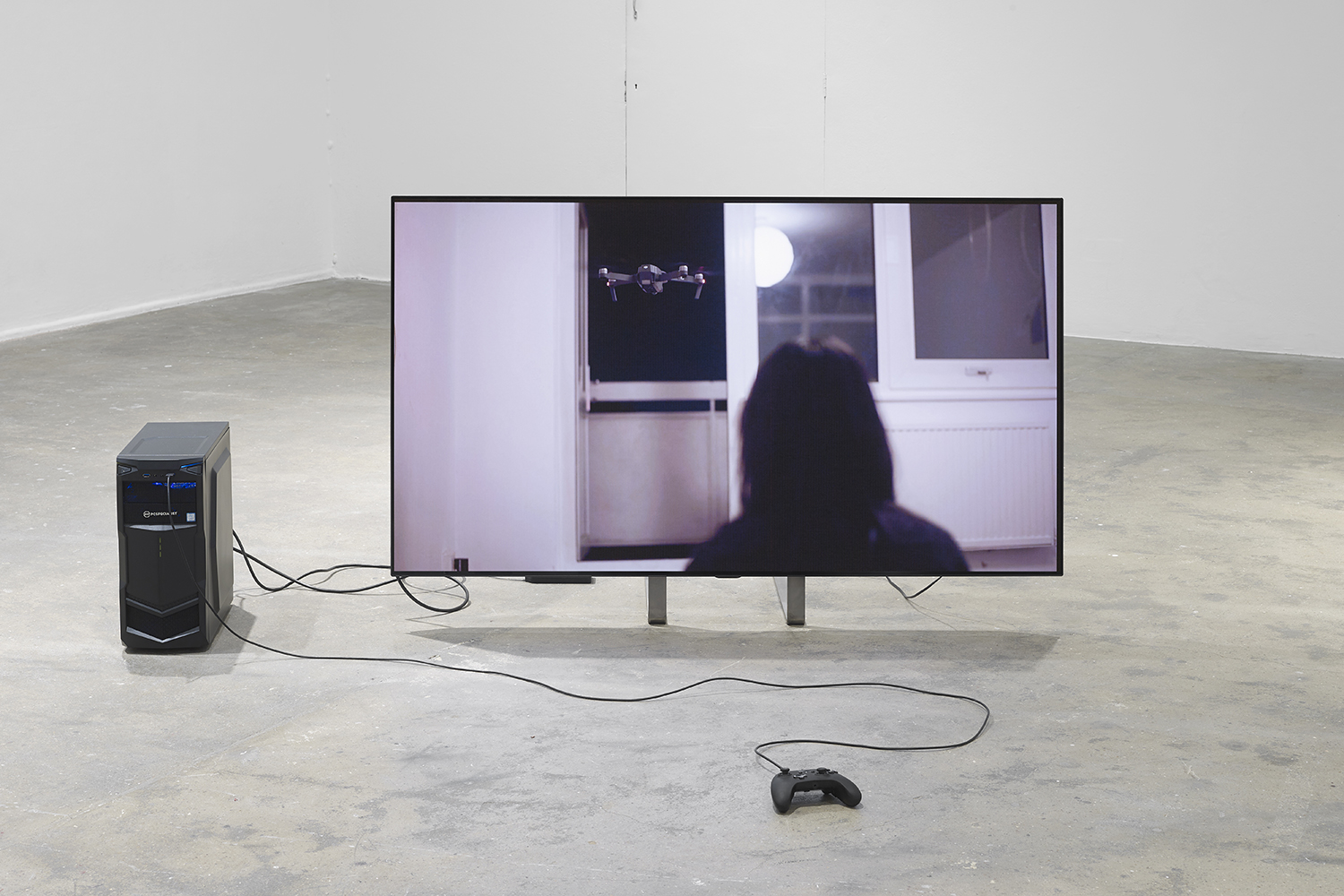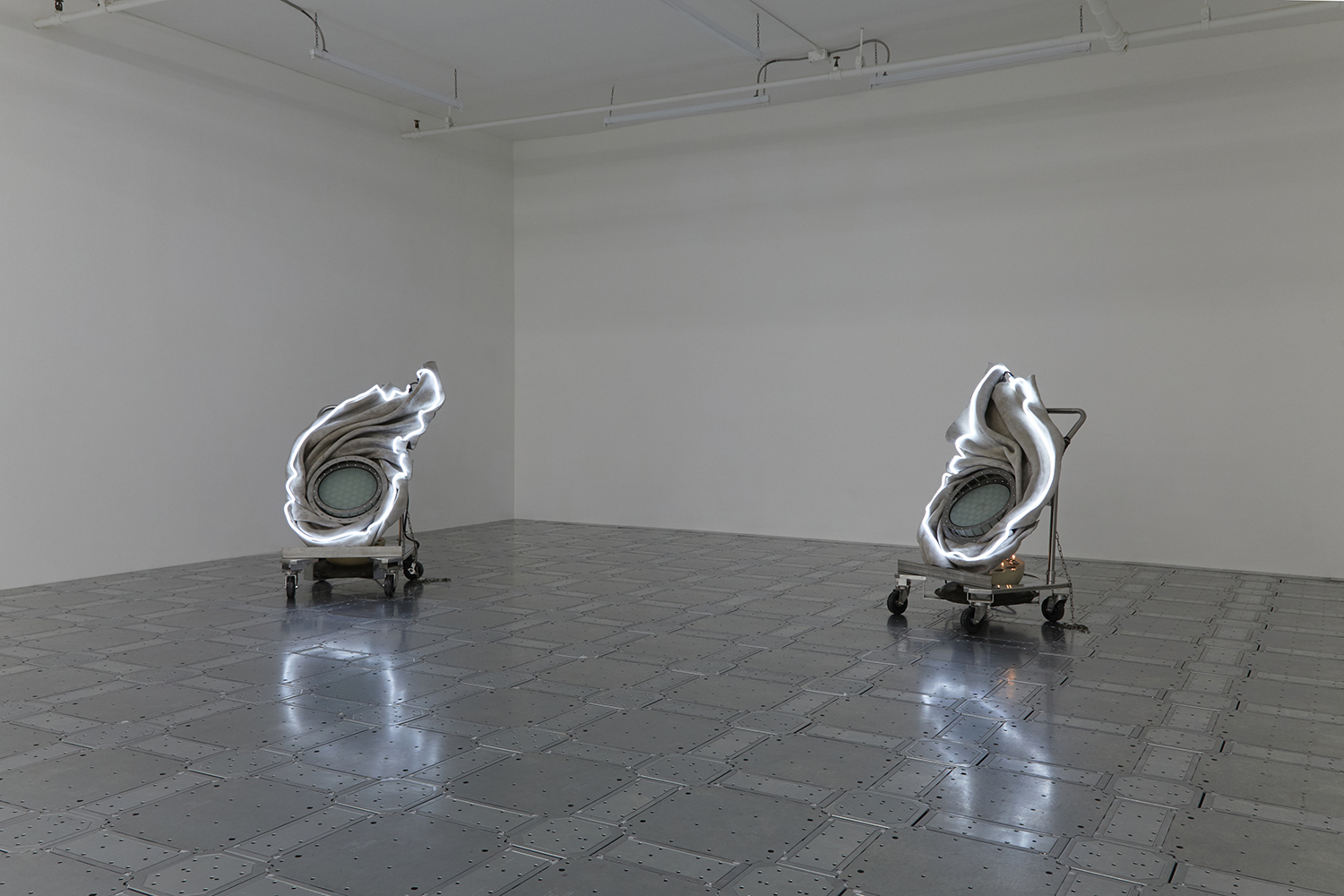“Welcome to End-Used City” continues Sidsel Meineche Hansen’s ongoing consideration of techno-capitalism’s stranglehold on biopolitics. The focus here is the body — specifically its contractual relationships engendered by surveillance and the accumulation of personal data. Via sex robots or surveillance capitalism, Hansen heightens the economic and psychological contract between user and provider as typically expressed through end-user license agreements, in which supplemental exchanges are made via a commodity’s terms of use.
Amaranthine and blood-licked, part mechanical prop and gendered theological device, Hellmouth (To Madame) (2018) is a latex gatekeeper — fully gaped and draconine. Pure crimson save for its soft-gold abyss studded with shagged canines, it’s a fitting introduction to Hansen’s work, which foregrounds the body and its industrial complex, what she calls a “techno-somatic variant of institutional critique.” Once an early example of vagina dentata, Hansen’s Hellmouth is less entrance and more double-sided portal —an autocannibalist orifice.
Almost a companion piece, Maintenancer (2018) is a video made in collaboration with Therese Henningsen. Set in a German brothel, the two interviewed Evelyn Schwarz, dominatrix and owner of BorDoll, as well as her assistant — who diligently maintains the brothel’s sex dolls. Viewers encounter the selection on offer: Yuki, for instance, is “something totally different” with her anime look and aqua hair matching freshwater eyes petted with feathery lashes. With a considered make-up palette, the assistant (who previously worked in social care and as a doctor’s assistant) applies blush and powder where appropriate, accentuating nipples, bubble-mouth, and hyperbolic vulva. Posthuman sex needs a gloved hand to disinfect the cavity of ejaculate, to thoroughly sterilize every hole. Here, the structural and psychological consequences of prospective automation are focused within the sex industry, where posthuman prostitution still relies on reproductive labor.
Another video with interactive Xbox controller occupies the floor. In End-Used City (2019) Hansen visualizes models of surveillance in social space — shifting from the false binaries of public and private. As an interactive video work, End-Used City utilizes a narrative game structure partly based on the forthcoming Cyberpunk 2077 featuring Keanu Reeves. The video incorporates three levels; a naked animated man — complete with hovering drone — occupies the threshold between each episode. Actor Anna Smith embodies a playable character that, in trying to live an “effective life,” moves through the London Underground — which inaugurated its Wi-Fi tracking system in July 2019. In the second level, she returns to a residential block where a concierge monitors her movements on CCTV; the reinstatement of manual labor behind such surveillance appears prosaic. In the final section, Smith operates a drone over London’s cityscape, exercising “her will as a surveillance capitalist,” as Hansen suggests in the exhibition’s pamphlet. Hansen’s rendering of surveillance-as-ecosystem is curiously low tech; identifiers of the accrual of personal data reveal themselves through interpersonal exchange, infrastructures, and spatial mechanisms.
In End-Used City, it is the animated character that provides the most fitting welcome to the exhibition. Seated with a backdrop of gaseous smog amid London’s evening cityscape, he quotes an interview with Alex Karp, co-founder and CEO of Palantir Technologies: “Most software comes in two flavors; it either doesn’t work or it’s not useful.” He concludes that Palantir’s software is “very useful, sometimes deadly.” Karp is a founding father of software capable of domestic tracking and real-time warfare, servicing national military intelligence. Look lower and note the animated character’s torso adorned with the techno-patriarchy of Silicon Valley, a contemporary leviathan.
Returning to Hellmouth, “Welcome to End-Used City” feels somewhat elliptical — tense with dependency on a transactional system that is based on soft complicity and continual distrust. Hansen, continuing her interrogation of the commodification of subjectivity — one that is disinvested of personal data assets and colonized by surveillance — sticks the knife in a futile sense of sovereignty. The city, Hansen shows, is disenfranchisement via baroque topography with flavors useful and/or deadly.


